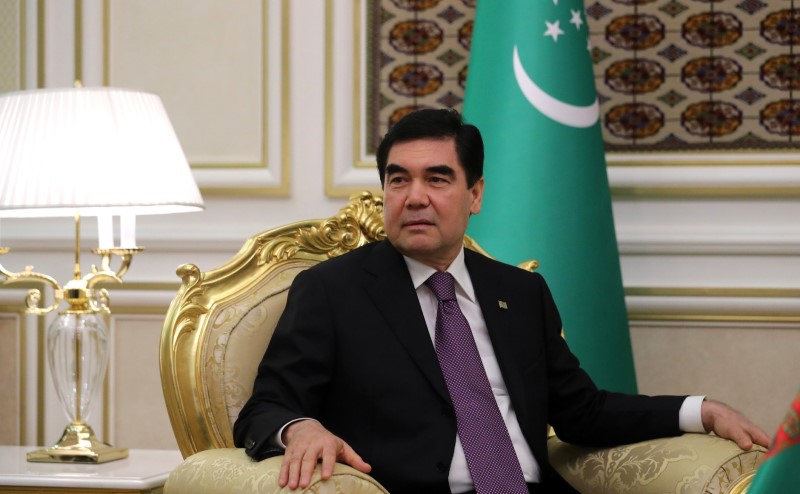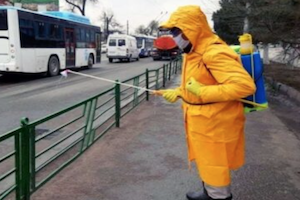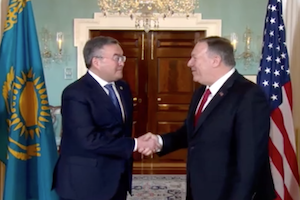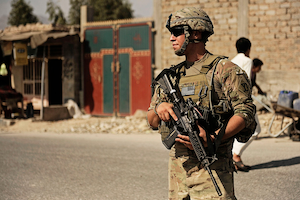Amid Rising Crises, Turkmenistan Strengthens its Military and International Outreach
By John C. K. Daly
November 19, 2020, the CACI Analyst
The year 2020 is proving to be inordinately arduous for Turkmenistan, inflicted with a multitude of problems including the Covid-19 pandemic, plummeting natural gas prices and increasing concerns about rising violence in neighboring Afghanistan. Complicating the Turkmen government’s response to these crises is the country’s relative isolation imposed by its internationally recognized policy of strict neutrality. Given the transnational nature of these issues, the Turkmen government is fitfully readjusting its domestic and foreign policies to cope, as the threats are both internal and regional. The Turkmen government is increasingly aware that Turkmenistan cannot unilaterally resolve these threats and is attempting to devise international outreach programs for assistance, a significant deviation from its previous isolationist nationalist policies.

Post-COVID-19: Challenges and Opportunities for Central Asia
By Bakhrom Radjabov
June 4, 2020, the CACI Analyst
Since January, COVID-19 (coronavirus) has reached the level of a global pandemic. At first, some Central Asian republics seemed to be virus-free islands with zero confirmed infection cases. Afghanistan confirmed its first COVID-19 case on February 24, followed by a closure of the borders with other Central Asian republics. Kazakhstan discovered its first cases of COVID-19 on March 13, and Uzbekistan on March 15. Kyrgyzstan confirmed its first case on March 18 whereas Tajikistan did not report any cases until April 30. Before this date, the country allowed mass gatherings, including the celebration of Navruz, which was cancelled by other Central Asian governments. Turkmen authorities have so far not officially reported any cases of COVID-19 in the country.

U.S. Presence in Central Asia: Realities and Perspectives
By Nurlan Aliyev
May 27, 2020, the CACI Analyst
In early February, U.S. Secretary of State Michael Pompeo visited Kazakhstan and Uzbekistan. He was received by the two heads of states in Nursultan and in Tashkent, Pompeo attended a C5+1 Ministerial with the foreign ministers of the five Central Asian republics to stress “U.S. support for a better connected, more prosperous, and more secure Central Asia” (State.gov). These thoughts are reflected in the new U.S. Central Asia Strategy. (State.gov). The renewed U.S. interest in Central Asia comes against the backdrop of China’s growing economic involvement in the region and Russia’s strong political and security relations with the Central Asian republics. Despite the Trump administration’s declarations of commitment to enhancing relations with the regional states, the perspectives of the U.S. in Central Asia should be examined.

Central Asia Caught in Economic Perfect Storm amid Oil Price Collapse and COVID-19 Pandemic
By Azad Garibov
May 12, 2020, the CACI Analyst
The collapse of oil prices and outbreak of a pandemic seems to catch Central Asia in an economic perfect storm. Some regional energy exporters will suffer directly from low oil prices and the pandemic; others will face adverse economic consequences more indirectly, in the form of reduced gas demand in China or decreased remittances sent by migrant workers.

Central Asia Nervously Awaits Withdrawal of Foreign Militaries from Afghanistan
By John C. K. Daly
April 8, 2020, the CACI Analyst
After 18 months of negotiations, the U.S. and the Taliban signed their bilateral landmark “peace agreement” in Doha on February 29, alongside representatives from more than 30 nations. Afghanistan’s northern neighboring post-Soviet states, Tajikistan, Uzbekistan and Turkmenistan, are concerned whether Afghanistan’s post-ceasefire instability will intensify and subsequently spill across the borders after foreign military missions withdraw. If the unrest roiling Afghanistan erupts into open military confrontation following the departure of foreign military forces, the question is whether the three nations alone can mount an acceptable response, particularly Turkmenistan whose international neutrality stance is recognized by the United Nations.



